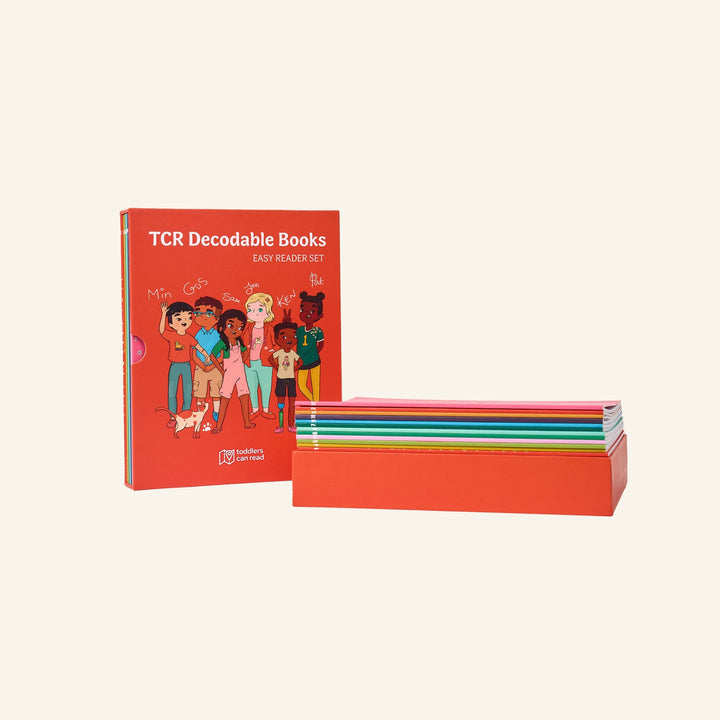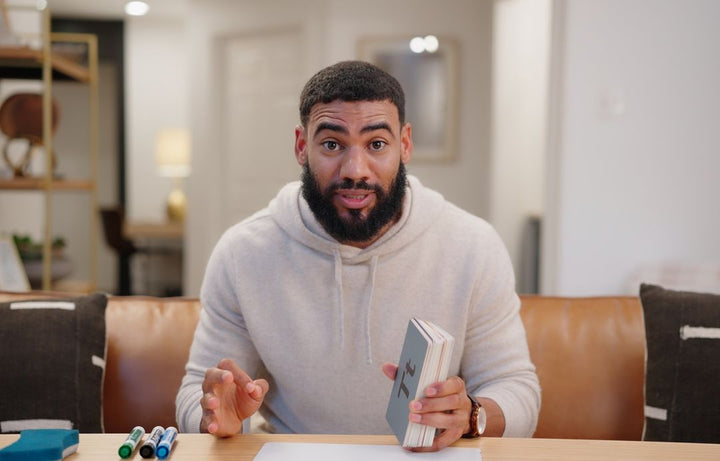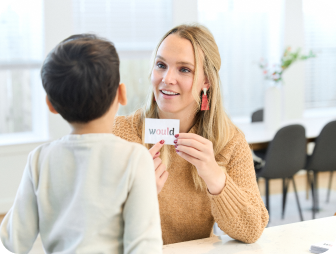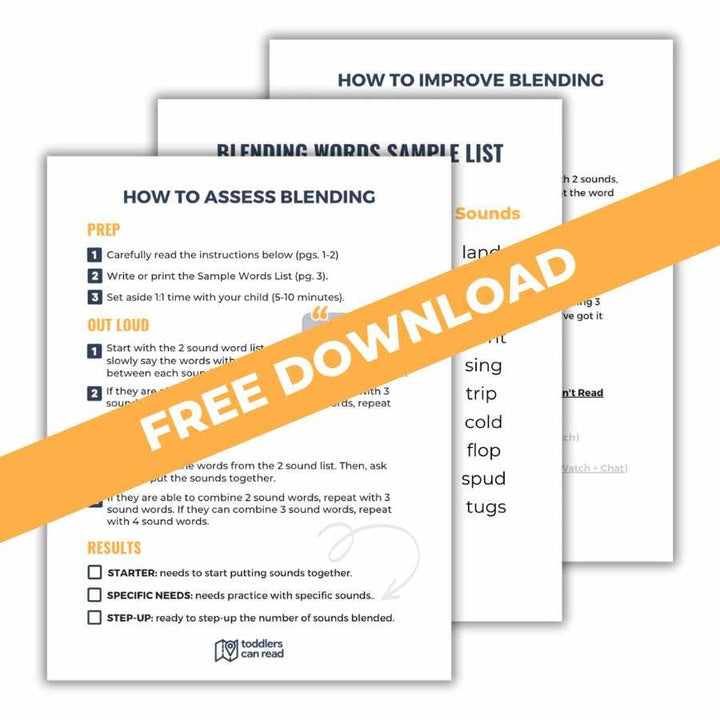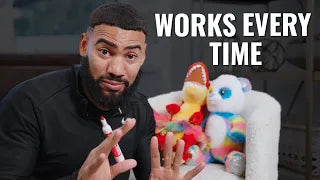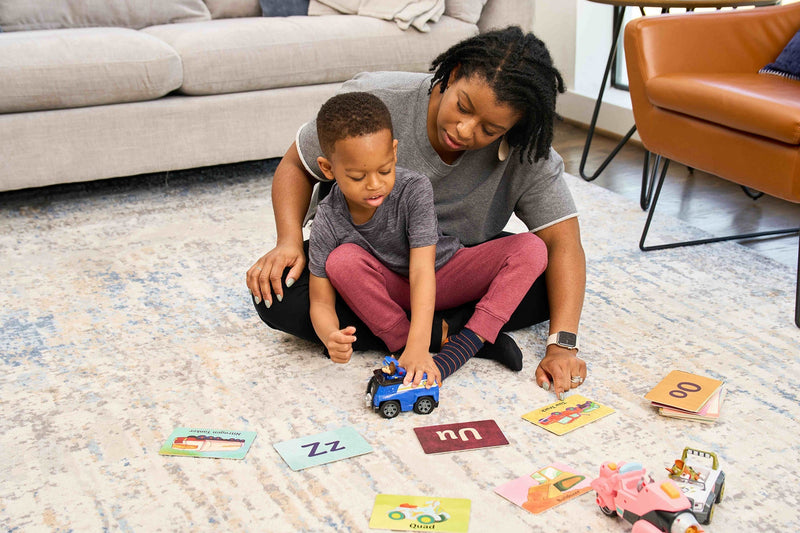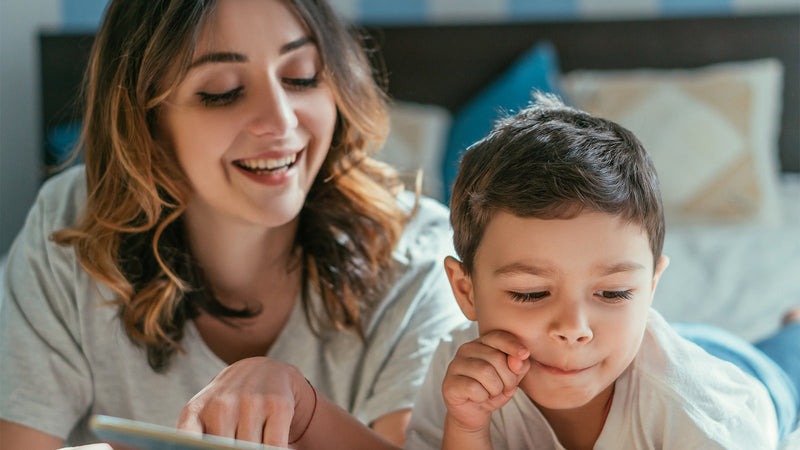I know what some of you are thinking about the title of this blog: "Is he really telling us we shouldn't be reading to our kids?"
Absolutely not. I'd be a hypocrite. Like many of you, my partner and I have been reading to our child since birth.
Reading to your little one is incredibly important. Reading aloud develops their oral language skills, teaches them about the world around them, and is a great way to bond.
You should 100% be reading books to your little one.
But, while reading to your child is a great experience for both you and them, it WILL NOT teach them how to read books on their own. Even if they can remember some words they've seen in books. Even if they have memorized entire books you've read over and over. Even if they can point to the words as you read.
Learning to read is incredibly complicated and is never as simple as just being read to.
If you want your kid to read, you should teach them.
I get it: You think you can help your child on their reading journey by simply showing them how to do it. You might think it is similar to skills like using a spoon or putting on socks. But it's not. We can help our little ones to feed and clothe themselves by showing and supporting them as they practice, because their brains are set up to learn those skills naturally.
Reading, however, requires a specific set of skills that cannot be learned by watching or listening because those skills are not developed naturally.
Think of it this way: Would your child be ready for their driver's test because you've been driving them around their whole life? Of course not.
But what if you sat them on your lap and let them play with the steering wheel? What if you explained the rules of the road as you drove? Could they do it then? Again, of course not.
Simply watching you drive, listening to the road rules, or even sitting in the driver's seat won't help your child pass the driver's test. Reading works much the same way.
Like driving, there are very specific rules for learning how to read. For example, reading TO your little one won't teach them what sound each letter makes or how the sound can change depending on the letters around it. They will also have to learn how to blend those sounds into whole words. Even if they've memorized some words they've seen in books, that doesn't mean they can apply those patterns to new words.
Still not convinced? Let's dive into the research.
How Learning to Read Happens—According to Research
Since many adults don't remember how we learned to read, we often believe it happened naturally or give credit to being read to or surrounded by books. But research tells us otherwise.
The most trusted research on learning to read, coined, "The Science of Reading," tells us that learning to read does not happen without instruction; and while a strong reader might make it look natural, in reality, they are processing every word carefully (often without realizing it.)
In an article published in the Early Childhood Education Journal, researchers Nancy Frey and Douglas stated that reading is not innate:
"Oral language and written language are fundamentally different.... Unlike speech, which develops uniformly across languages and cultures and is directly associated with specific brain and motor structures, reading occurs only through the intentional appropriation of existing structures within the brain. While many thousands of spoken languages have existed during the course of human history, not all have a written language component. Reading is a complex, rule-based system that must be imposed on biological structures that were designed or evolved for other reasons. Most children are born with the right structures, but these structures do not inherently know how to read."
And the fact that our brain is not wired to learn how to read or to pick up on reading naturally (without direct instruction) is a point that almost everybody who studies reading and studies the brain agrees on.
PS: If you're interested in learning more about what the Science of Reading tells us about learning to read, I highly recommend this video of Stanislas Dehaene (author of Reading in the Brain: The New Science of How We Read.)
If you want to teach your child to read, you can.
Now that we've cleared up how people learn to read, the thought of teaching your child might feel impossible. I am here to tell you that if you want to teach your child to read on their own, you can.
Just because learning to read isn't a natural process doesn't mean that we, as adults, can't learn and teach those steps. My courses are made for parents and caregivers: breaking down those steps and giving you what you need to teach your little ones how to read.
But make no mistake: I will never try to convince you that you have to teach your little one how to read. Because some of you might not need to!
If you know that your child is going to a great school, and you completely trust that school to do a good job teaching them to read, maybe you don't see a reason to. If you have the money to pay a tutor for your little one, if they do fall behind, maybe you don't feel like it's necessary for you to start at home.
Or maybe you just don't want to or don't want to yet. And that's fine, too.
There are a lot of reasons why you shouldn't teach your little one how to read...
... and also plenty of reasons why you should.
Chances are, if you are reading this blog, you care about your child's literacy. If the only advice you've heard for supporting literacy is to read lots of books or learn their ABC's, you've been lied to. It just will not add up to an independent reader.
Ultimately, teaching (or not teaching) your child how to read is a personal decision based on what is best for your family and for your little one.
Because no matter what you and your family choose to do, you should understand three simple truths:
- Reading to your child is a worthwhile activity.
- Reading to your child won't teach them how to read on their own.
- If you want to teach your child to read on their own, you can learn how to do it.
And if you decide that you do want to teach your little one how to read, I've got you covered. I have an amazing (and free) Beginning Reading Workshop that will walk you through the basic steps you'll need to get started; it also has a live chat where you can ask me questions as you watch!
Sources:
Moats, L. C. (2020). Teaching Reading "Is" Rocket Science: What Expert Teachers of Reading Should Know and Be Able to Do.
Frey, N., & Fisher, D. (2010). Reading and the brain: What early childhood educators need to know. Early Childhood Education Journal, 38, 103-110.


